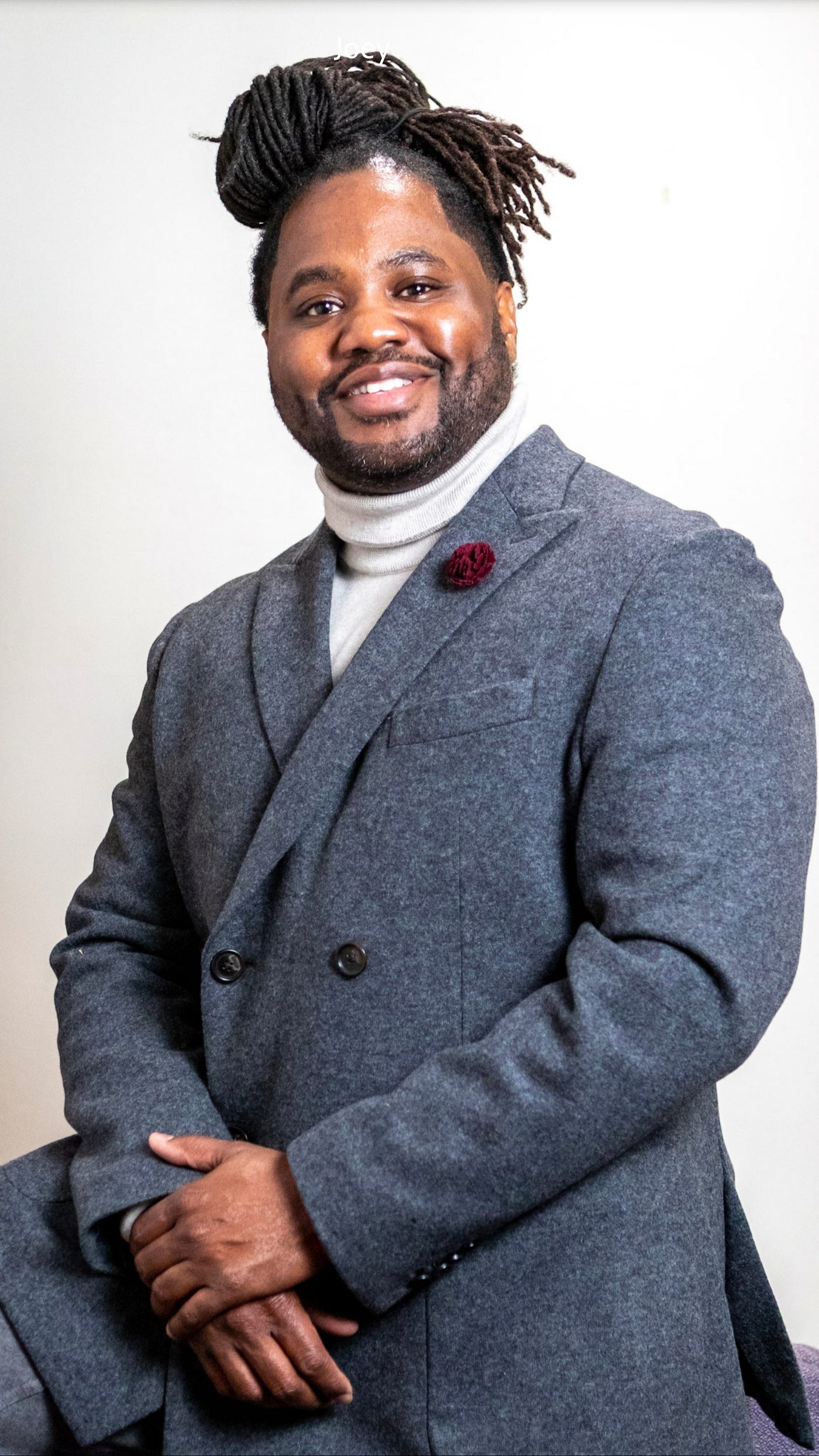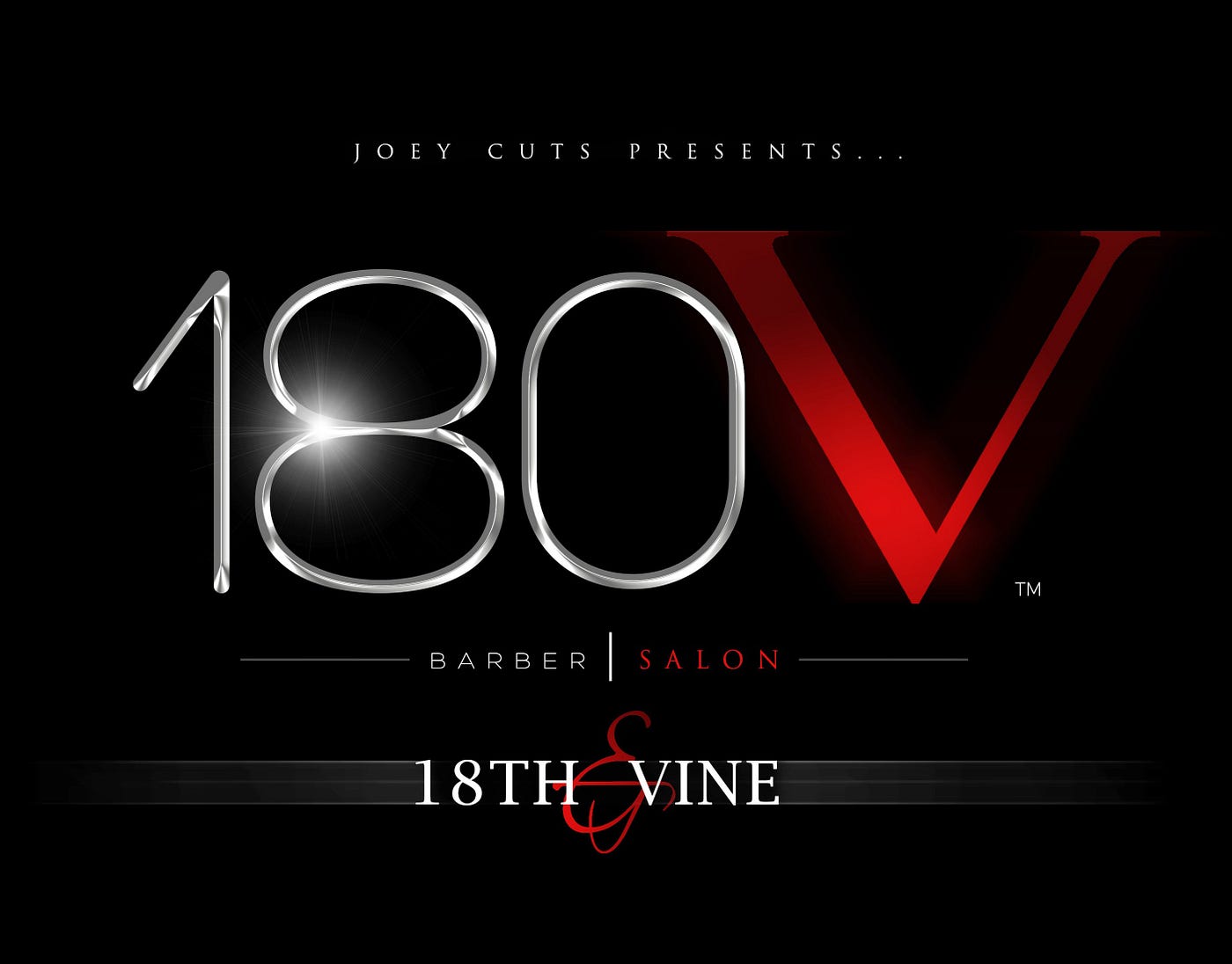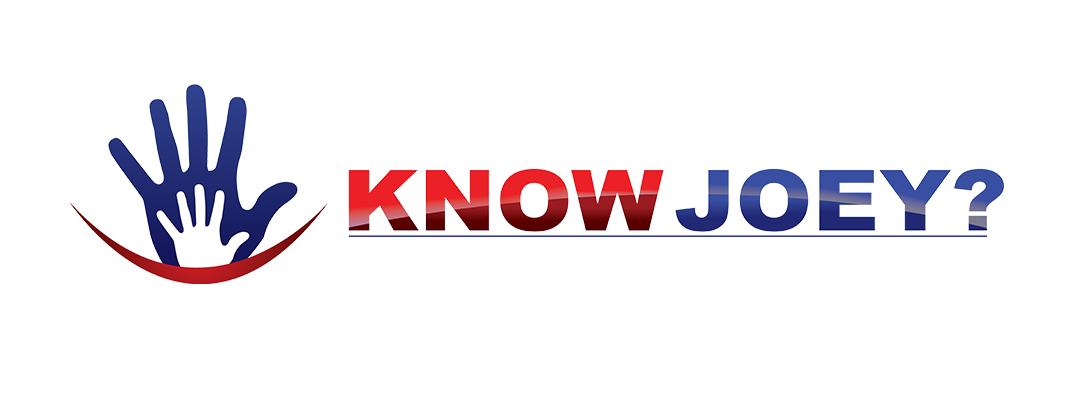As the owner of 180V Salon in Kansas City, Missouri, barber and philanthropist Joey Thomas spends his days listening to what the people in his hyper-segregated city want and need. Barbershops are one of the cultural cornerstones of the Black community, so Thomas has used this platform to help discover and fill needs not being met in his community.

Thomas is the co-founder and executive director of the Know Joey Foundation, a nonprofit that supports at-risk youth with education and entrepreneurial development. He also serves on the boards of the 18th and Vine Development Policy Committee, Community Action Agency, and KC Credit Union, to help others gain access to capital and create lanes of opportunity for underserved populations. While Thomas has dedicated his career to uplifting others, now he’s struggling to receive financial relief for his own organization.
COVID-19 lockdowns disproportionately impacted Black-owned businesses, shutting them down at nearly twice the rate of white-owned businesses. The financial hardships of the pandemic have been especially devastating to Black entrepreneurs. Banks offer them less funding and loans due to historically discriminatory practices, such as redlining. Further, traditionally Black-run businesses like barbershops face the hidden challenges of a business structure that disqualifies them from receiving COVID-19 relief from the Paycheck Protection Program (PPP).
Racial inequities in access to capital are detrimental to the economy. Dana Peterson, a global economist at Citigroup Inc., calculates that “an additional 6.1 million jobs a year and $13 trillion in business revenue could have been generated over the last two decades if Black entrepreneurs had fair and equitable access to credit.”
In this Q&A, Thomas shares how he’s leveraging his business to empower his neighborhood, inspiring others to uplift each other through difficult times, and how he plans to grow that vision after COVID-19.
What’s the story behind 180V Barber Salon?
Joey Thomas: I first started taking haircutting seriously around age 12. My great-grandpa allowed me to cut his hair and put a lot of trust in me. He was a popular preacher in the neighborhood, so he and my great-grandma had a house in the neighborhood that folks in the Black community often refer to or think of as “Big Momma’s House.” You’d know that at any time, you could go there and get something to eat, get some love, you’d get told what to do, and you knew you had to kind of pull your pants up. My community and the trust they placed in me has always been important to me.
When I graduated from barber school, I went straight into a shop called Leenaj Barber Salon on 75th and Prospect Street here in Kansas City. My mother owned Dimples, a well-known salon at the time, and so many people asked why I chose to work somewhere new, but I wanted to get out from underneath her reputation and truly make a name for myself. I spent my first two years at Leenaj paying more in rent than I made in profits each week, but I stayed dedicated. The gentleman who owned the shop — Harold Mitchem, or as we called him, Mr. Mitch — taught me a lot about integrity, hard work, dedication, and sacrifice. He instilled those values in me, and little did I know, those would be the life skills I’d really need later on.
Years later, I had the opportunity to open up my own salon. Mr. Mitch gave me his wisdom and blessings, so I was off to the races with JoeyCuts Barber Salon on 39th and Indiana Street. At the time we opened in 2008, Kansas City was nationally labeled as the “killer city” and “murder factory.” We were located in the 64130 ZIP code, which had the highest crime, murder, and prison rate for the whole state of Missouri. I saw that as a chance to make connections with the community and let them know we were here to operate out of love. We wanted to create change, no pun intended, one head at a time. We did just that, and after two years of being in service, we ended up winning Steve Harvey’s Hoodie Award (now known as the Neighborhood Award) for being the best barbershop in the nation in 2010. That was a huge accomplishment, not just for JoeyCuts, but for all of Kansas City, because the people here made it possible.
What an awesome accomplishment. How has your business grown?

In 2014, we had the opportunity to expand to 18th and Vine Street, the jazz district of Kansas City, as 180V Barber Salon. I’m extremely humbled to be here because I remember doing book reports in school about this neighborhood and its rich culture and heritage.
We’re working now to open a barber college inside of 180V Barber Salon, which we’re crafting through the Know Joey Foundation as a youth entrepreneur development program. Kansas City just hit its most violent year in at least a decade. A lot of that comes from the lack of opportunity and access to the next level. I want to give people a positive, alternative option. It’s something that’s really needed and we’re continuing to work toward it. But considering the financial momentum we need behind it, COVID-19 has disrupted our plan.
How has COVID-19 affected your business?
COVID-19 has been financially detrimental. As a barbershop, all of my “employees” are really 1099 independent contractors. My business is structured properly, but because of that, I technically have zero employees. A lot of organizations were getting COVID-19 relief as small businesses, which are defined as having three-plus employees, but we don’t qualify under that class. That limited my ability to access financial relief and resources.
There were some efforts and solutions to support businesses out there, but because of the pandemic, I couldn’t return to work unless I wanted to get hit with citations, fines, the possibility of up to six months’ jail time, and the possibility of my license being revoked. Not only could I not work, but there was no way to pivot. You can’t cut hair online. You can’t cut hair outside of the 6-foot social distancing rule. So after being legally forced to not make money for three months, I had to come back and start paying rent again.
Can you tell me more about your process of trying to gain access to capital, especially for COVID-19 relief? What successes and challenges have you encountered along that way?
When you go to a bank to apply for a loan, you’re looking at all these different business classes and structures. But again, the structure of businesses like barbershops makes us the truly undefined “Other.” I’ve been in business ownership for 10 years — having owned two salons, and at one point I had a staff of 17 — but even at that time, working with a bank wasn’t an option. They didn’t see me as having any payroll.
The Black business community in Kansas City has made a lot of strides in demanding and receiving resources from local government. While the resources are plentiful now, access is still limited. What’s the good in that? We see all this development and opportunity around us, but when it’s time for us to reach out and become a part of it, it’s taken away for excuses like not being established enough. When it comes to the business structures of my sector — hair, nails, makeup salons, fitness trainers, others in the cosmetology industries — we don’t have a clear roadmap to success or to scale. Why can’t there be more opportunities for these kinds of business structures?
What’s the relationship between your work at 180V and your involvement in philanthropy and the community?
JoeyCuts and 180V have been the primary force behind the Know Joey Foundation, which we founded in 2007. Around that time, a group of friends and I were doing a lot of promotions, throwing parties and having fun. But in the midst of all those parties, I was thinking, “If we have so much influence to have people go out every weekend, drink, spend all their money buying bottles, and trying to be the most popular person in the club, then I bet we can influence these people to do something more positive and progressive for their community.”
We’ve kept that energy alive for 13 years now. We offer programs that collect food for families in need, provide free haircuts and school supplies to kids, promote entrepreneurial development for students, and more.

How did you identify the need for the Know Joey Foundation’s programs? What impacts do those programs make?
Operating through empathy has been our most successful approach. A place like a barbershop is where people come in and have candid, truthful conversations — no judgment or criticism. A barber-client relationship is an important one. I’ve got secrets that men and women have shared with me about issues they’d probably never tell their spouse, children, or closest friend. Any time a person is willing to lay back in your chair and you’ve got a razor to their neck, it means they’ve got a lot of trust in you.
It’s almost as if I’ve got a cheat code by standing behind this chair. I get a chance to put out a daily census of what my community is not only going through currently, but what they want in the future and what they’ve been through in the past. Every person that sits in my chair has a different job or outlook on life. I get to cut the preacher, the city leader, the drug dealer, the street politician. I get this wide range of people, and my main focus is: How do I make Kansas City better by connecting all these dots?
• Read our interview with GIFTKC co-founder Brandon Calloway.